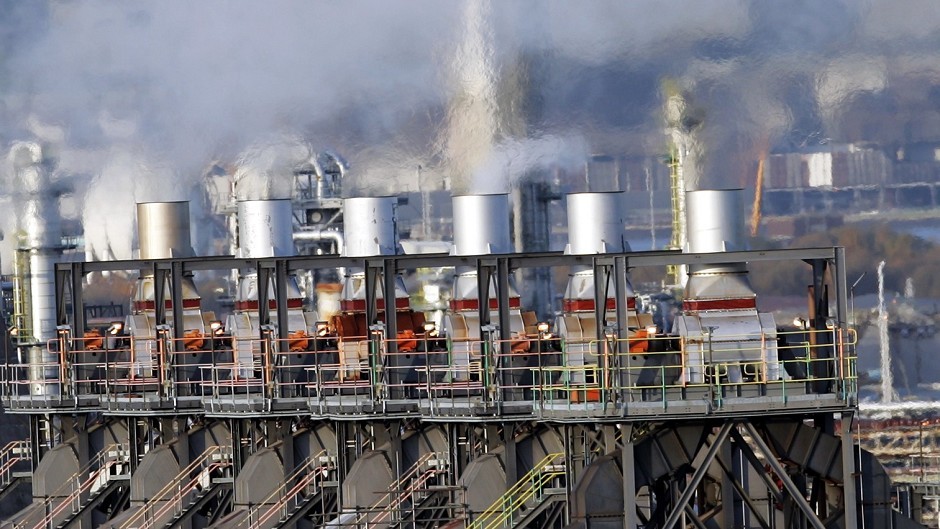The UK could be poised for the kind of shale gas boom the US has been enjoying under £640million investment plans unveiled by Swiss chemical giant Ineos yesterday.
Ineos is looking to have a major stake in any shale exploration and production on this side of the Atlantic.
The company has pledged, subject to it winning shale licences currently under consideration by the UK Government, to spend £640million on exploration.
Billionaire chairman and majority stakeholder Jim Ratcliffe said the investment would go ahead within five to six years, and more would follow if the company moves into development and production.
He added: “I want Ineos to be the biggest player in the UK shale gas industry.
“I believe shale gas could revolutionise UK manufacturing and I know Ineos has the resources to make it happen.”
Ineos owns the huge petrochemicals complex at Grangemouth.
The plant is currently running at a loss but could have a new lease of life under previously announced plans from Ineos which would see it processing imported US shale.
Ineos already has two shale licences covering 120,000 acres of land near its Grangemouth facilities.
It has applied for licences elsewhere in Scotland and the north of England, and Mr Ratcliffe said he expected decisions on these early next year.
Gary Haywood, chief executive of the group’s upstream division, said hundreds of wells would be drilled if Ineos gets the go ahead.
The firm has previously said it will share 6% of shale gas revenues with local communities, meaning a £2.5billion windfall if it succeeds with all the licence bids it has made.
Exploration to see whether shale resources in the UK are commercially viable has been slow in the face of local opposition to the controversial process of hydraulic fracturing, or fracking.
Critics say the fracking extraction process – injecting chemicals, sand and water into rocks at high pressure – can pollute water supplies and trigger small earthquakes.
It is banned in France, while Germany plans only to allow it in exceptional cases.
Ineos – already investing £300 million on a project to bring US shale gas to Grangemouth – has highlighted its strong safety record and the experience of fracking in the US, where growing output has driven down energy prices.
Ineos said there were lots of “scare stories and myths” about fracking, but insisted the process was safe.
Wells had been built next to schools, churches and houses in the US, sometimes in the centre of large towns, the company added.
Mr Haywood said: “It is possible to drill wells in densely populated areas but we don’t think that is necessary.”
Many of Ineos’ applications were for rural areas and drilling could be done without much disruption, he added.
But environment campaigners were unconvinced by the company’s assurances and its hopes for a UK shale boom.
Simon Clydesdale, energy campaigner at Greenpeace UK, said: “Investment is essential to transform our energy system but not giant speculative bets on unproven and risky resources.
“Ineos have jumped on a spin-powered bandwagon which is going nowhere.”
Richard Dixon, director of conservation group Friends of the Earth Scotland, said: “Ineos are masters of spin but they seem to have outdone themselves this time, promising something they can’t possibly deliver on.”
Green MSP Patrick Harvie said: “Climate science tells us we already have access to far more fossil fuel than we can safely burn, so the public is quite justified in opposing these risky new techniques for extracting more gas.”
A spokesman for the Scottish Government said it was committed to “appropriate and robust” regulation of drilling techniques – such as fracking – associated with the extraction of shale gas.
